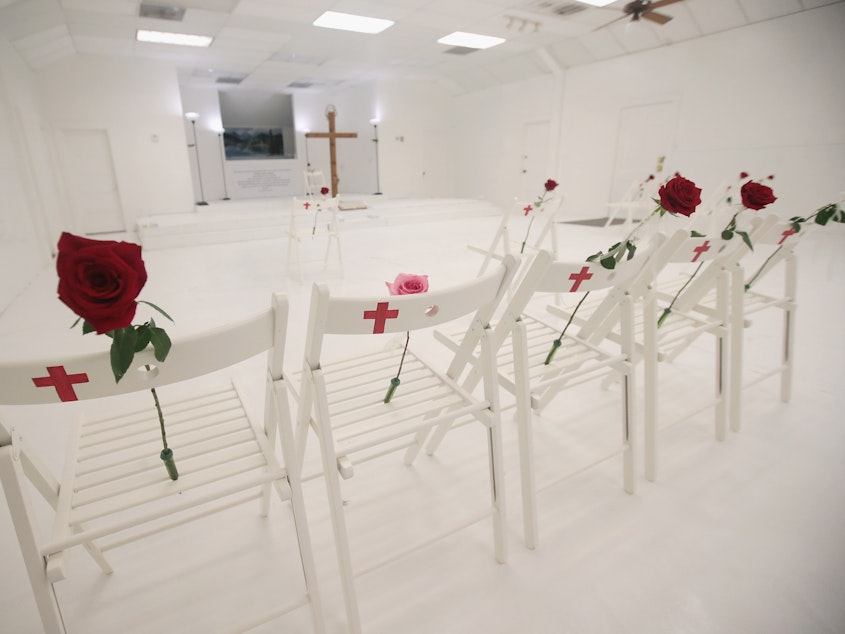A judge ordered the U.S. to pay $230 million to victims of a Texas church massacre

The U.S. government must pay victims and families of victims of a 2017 Texas church massacre more than $230 million, a federal judge ruled on Monday.
The man who killed 26 people and wounded 22 others at the church in Sutherland Springs, Texas, should have been barred from legally owning firearms because of an earlier domestic violence conviction. But the U.S. Air Force failed to enter his name into the correct database.
Judge Xavier Rodriguez of the U.S. District Court for the Western District of Texas awarded varying amounts in damages to some 80 people, many of whom suffered permanent debilitating injuries or lost loved ones.
Some of the victims were young children: a 6-year-old girl was shot three times; a 5 year old was shot four times.
The shooter, Devin Patrick Kelley, was court-martialed for assaulting his then-wife and stepson in 2012 while he was in the Air Force. He was discharged in 2014. Under federal law, his conviction should have prevented him from legally buying guns.
But he was able to purchase an AR-556 rifle that he used in the massacre.
Rodriguez ruled last July that the Air Force, represented as the U.S. government in the case, was "60% responsible" for the shooting because of a mistake that led to Kelley's name being left off of an FBI database.
Kelley died of a self-inflicted gunshot after being confronted and chased by local residents and losing control of his car.
The November 2017 shooting was one of the deadliest in modern U.S. history. [Copyright 2022 NPR]

